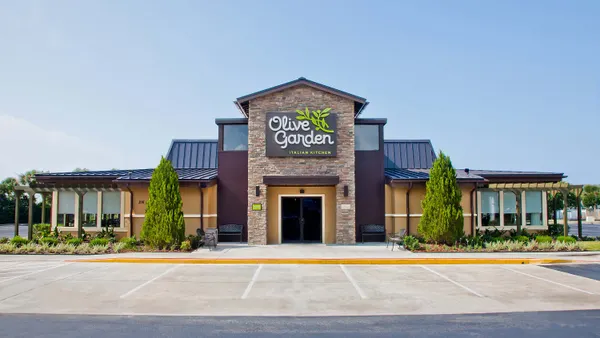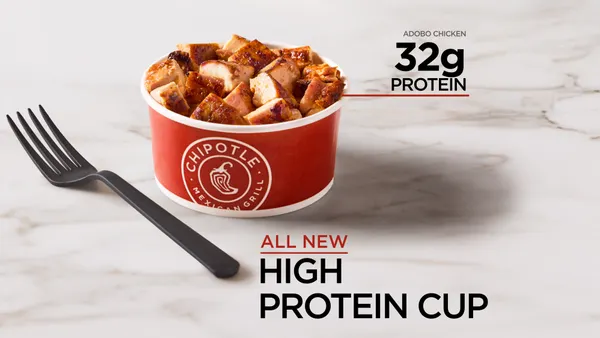Dive Brief:
- McDonald's, KFC and Taco Bell all improved their drive-thru speeds in 2020 compared to 2019, according to the 2020 SeeLevel HX Drive-Thru Study, which measures 10 quick-service restaurants' drive-thru performances on the basis of speed, accuracy, customer service and taste.
- McDonald's service times improved by nearly 30 seconds, while Taco Bell’s improved by over nine seconds KFC's speed of service improved by nearly two seconds.
- Part of McDonald's improvement could be attributed to the chain's deployment of Dynamic Yield menu boards, which streamline the ordering process using artificial intelligence. The technology now exists at about 11,000 of the chain’s 14,000-unit U.S. footprint, according to Nation’s Restaurant News.
Dive Insight:
Notably, McDonald's also removed its all-day breakfast this spring, which likely expedited operations. Taco Bell trimmed its menu over the summer, which may have accelerated its drive-thru times as well. Finding more speed at the drive-thru during the COVID-19 pandemic is no doubt a challenge since the channel is experiencing heavier volumes from lingering dining room closures and consumer hesitation to dine indoors. According to research from The NPD Group, drive-thru visits increased by 26% in the April, May and June quarter, for example. For McDonald's, specifically, the drive-thru generated nearly 90% of sales in Q2, McDonald's CFO Kevin Ozan said during a call with investors.
Drive-thrus have become such table stakes in this crisis environment that a number of chains, from fast casuals like Shake Shack to QSRs like Taco Bell, are investing heavily into the channel for the long-term.
If the channel does indeed sustain higher volumes, McDonald's is in a good position because of the efforts it has made throughout 2019. After acquiring Dynamic Yield in March of last year, the chain announced it had slashed 20 seconds off its drive-thru times year-over-year in October 2019.
The machine learning process from the Dynamic Yield technology can predict what customers want to order before they make up their minds. These decisions are made based on past customer orders, time of day, weather, length of wait and more.
At the time of the Dynamic Yield acquisition, McDonald's claimed to be one of the first companies to bring decision technology into its point-of-sale system. Denver-based Good Times Burgers and Frozen Custard also deployed AI technology in January 2019, a move that improved wait times by 10% to 25%, Datanami.com reports.
That speed translates to sales. The SeeLevel HX report indicates that the slower overall times in 2020 equated to a substantial loss in revenue opportunities, with a typical brand losing over $64 million annually per 2,000 stores. On the other hand, digital menu boards have resulted in savings with those that offered them saving over $55 million per 2,000 locations and service times of about 229 seconds compared to 241 seconds for those without digital menu boards, according to the report. This could explain why more brands including Taco Bell and KFC are adding artificial intelligence technology to their digital portfolios.








